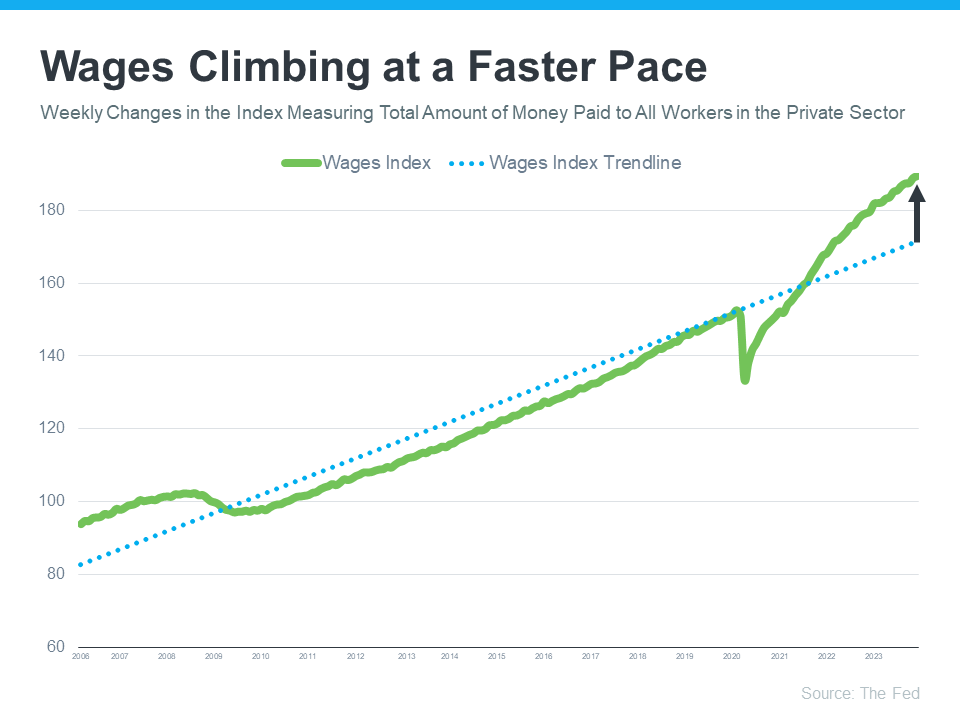Fannie Mae economist: Home affordability to improve, over the coming months
Fannie Mae economist: Home affordability to improve, over the coming months
Fannie Mae economist: Home affordability to improve, over the coming months
Fannie Mae economist: Home affordability to improve, over the coming months. Fannie Mae’s board of economists have come out with a new prediction on the direction of housing prices and interest rates, over the coming months.
Hey, their predictions are as good as anyone else’s, right
What do they foresee?
Over the past year, a lot of people have been talking about housing affordability and how tight it’s gotten. But just recently, there’s been a little bit of relief on that front. Mortgage rates have gone down since their most recent peak in October. But there’s more to being able to afford a home than just mortgage rates.
To really understand home affordability, you need to look at the combination of three important factors: mortgage rates, home prices, and wages. Let’s dive into the latest data on each one to see why affordability is improving.
1. Mortgage Rates
Mortgage rates have come down in recent months. And looking forward, most experts expect them to decline further over the course of the year. Jiayi Xu, an economist at Realtor.com, explains:
“While there could be some fluctuations in the path forward … the general expectation is that mortgage rates will continue to trend downward, as long as the economy continues to see progress on inflation.”
And even a small change in mortgage rates can have a big impact on your purchasing power, making it easier for you to afford the home you want by reducing your monthly mortgage payment.
2. Home Prices
The second important factor is home prices. After going up at a relatively normal pace last year, they’re expected to continue rising moderately in 2024. That’s because even with inventory projected to grow slightly this year, there still aren’t enough homes for sale for all the people who want to buy them. According to Lisa Sturtevant, Chief Economist at Bright MLS:
“More inventory will be generally offset by more buyers in the market. As a result, it is expected that, overall, the median home price in the U.S. will grow modestly . . .”
That’s great news for you because it means prices aren’t likely to skyrocket like they did during the pandemic. But it also means it’ll probably cost you more to wait. So, if you’re ready, willing, and able to buy, and you can find the right home, purchasing before more buyers enter the market and prices rise further might be in your best interest.
3. Wages
Another positive factor in affordability right now is rising income. The graph below uses data from the Federal Reserve to show how wages have grown over time:
If you look at the blue dotted trendline, you can see the rate at which wages typically rise. But on the right side of the graph, wages are above the trend line today, meaning they’re going up at a higher rate than normal.
Higher wages improve affordability because they reduce the percentage of your income it takes to pay your mortgage. That’s because you don’t have to put as much of your paycheck toward your monthly housing cost.
What This Means for You
Home affordability depends on three things: mortgage rates, home prices, and wages. The good news is, they’re moving in a positive direction for buyers overall.
Boston Condos and the Bottom Line
If you’re thinking about buying a home, it’s important to know the main factors impacting affordability are improving. To get the latest updates on each, let’s connect
Where is Ford Realty Located?
Ford Realty is located in 137 Charles Street in Beacon Hill
![]()
__________________________________________________________________________________________
Fannie Mae economist: Home affordability to improve, over the coming months
Well, first, they say that, over the past 12 months, housing affordability has improved.
From Fannie Mae:
“During this period, the effective mortgage rate increased by 96 basis points, median family income increased by 3.7 percent, and median existing home prices increased by a very modest 1.7 percent.
So, over the last year, increases in median family income were more than sufficient to cover increases in existing home prices.”
This improvement should continue, over the coming months.
There will be “modest increases in both mortgage interest rates and home prices for the rest of this year.”
The good news, for consumers, is that they should “expect income to continue to increase as well, suggesting that we could see a modest improvement in affordability over the remainder of this year.”
Sounds good.
By the way, I have a question about the National Association of Realtor’s definition of “affordability”. Their index measures whether a family earning the median income can afford to buy a median priced single-family home, at the prevailing mortgage loan interest rate.
The calculation assumes “an 80-percent loan-to-value ratio and a qualifying housing-to-income ratio of 25%.”
This is of limited value, since more people are taking out 80% first loans, and 10-15% second loans. Plus, I’m not sure what NAR means by “housing-to-income ratio”. If they mean that you should be able to buy a home 4x your annual salary, that’s useless – it doesn’t take into account the effect of lower interest rates.
If they mean that your monthly housing expense should be 25% of your monthly income, then that makes more sense, but it’s still lower than what banks would loan against – they’d allow a 28-33% ratio.
Back to Boston condos for sale homepage
Contact me to find out more about this property or to set up an appointment to see it.
Back to the homepage: Boston condos
Updated: Boston Real Estate Blog 2024
Back Bay Condos for Sale
Sorry we are experiencing system issues. Please try again.
Click Here > Boston Back Bay Apartments for Rent
SEARCH FOR BOSTON CONDOS FOR SALE
For more information please contact one of our on-call agents at 617-595-3712.
